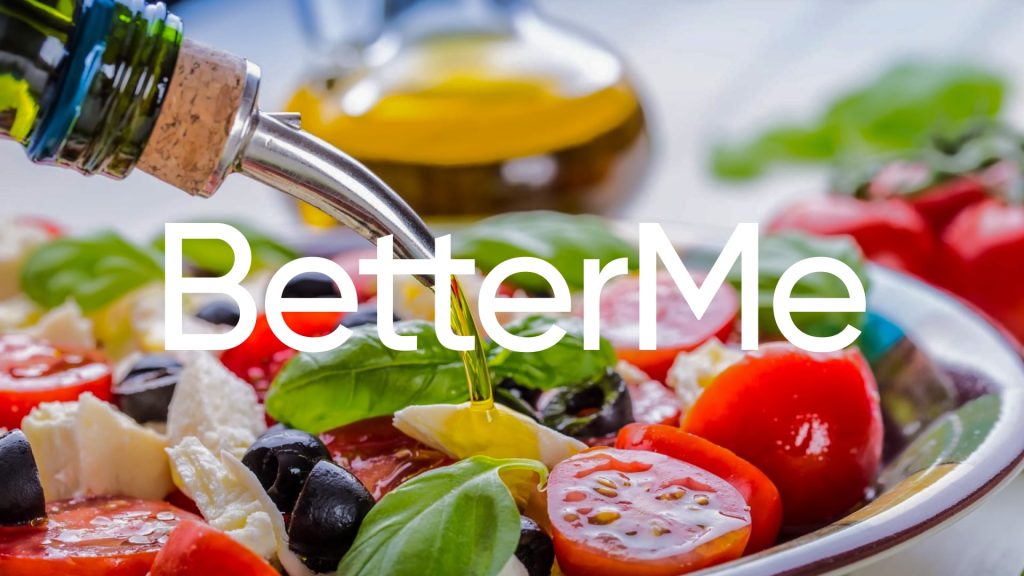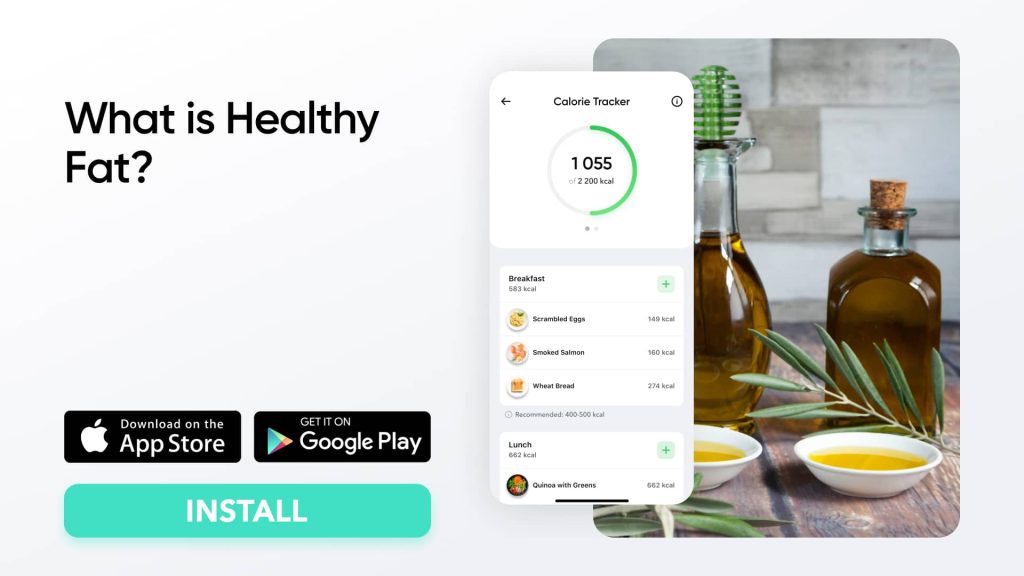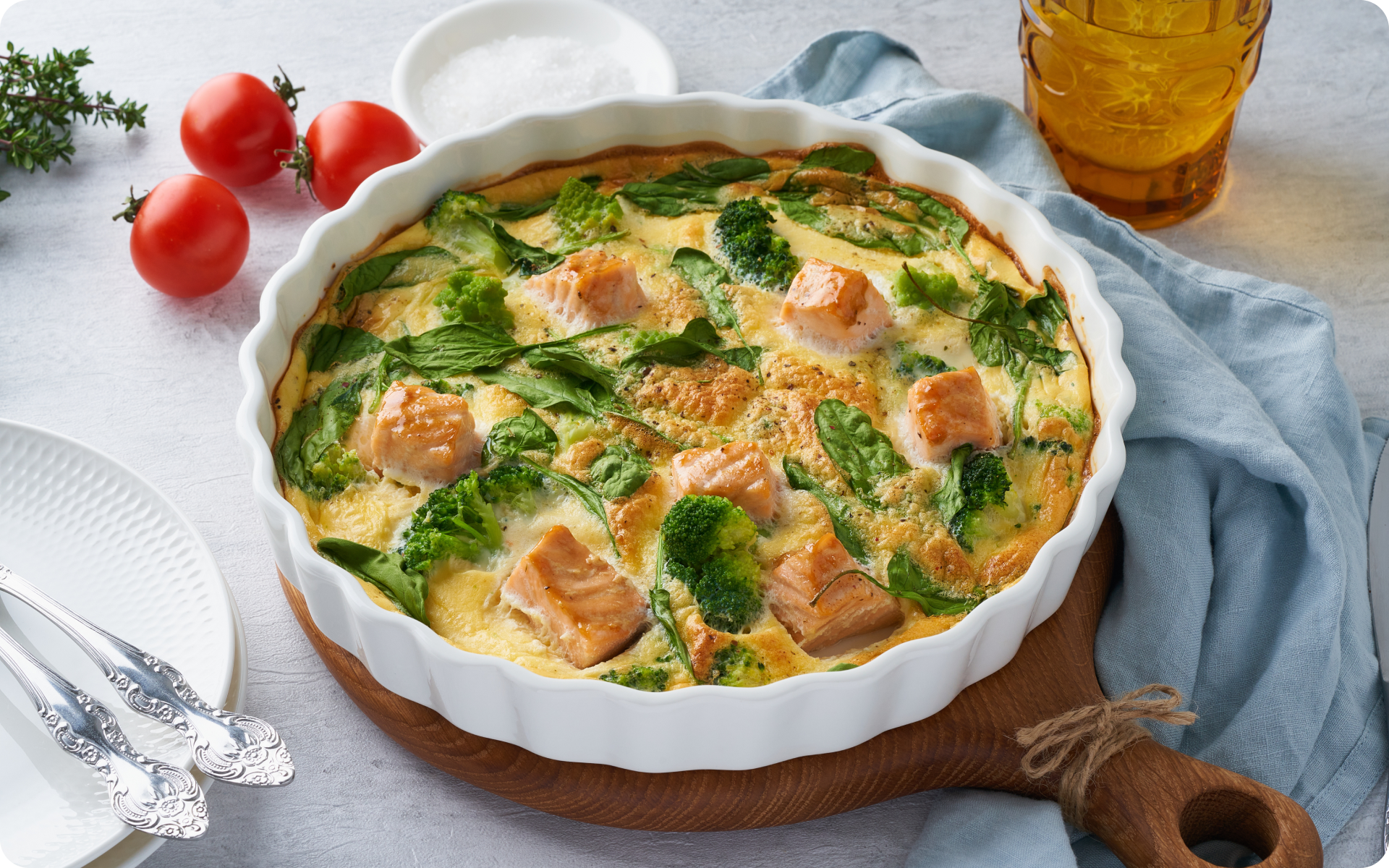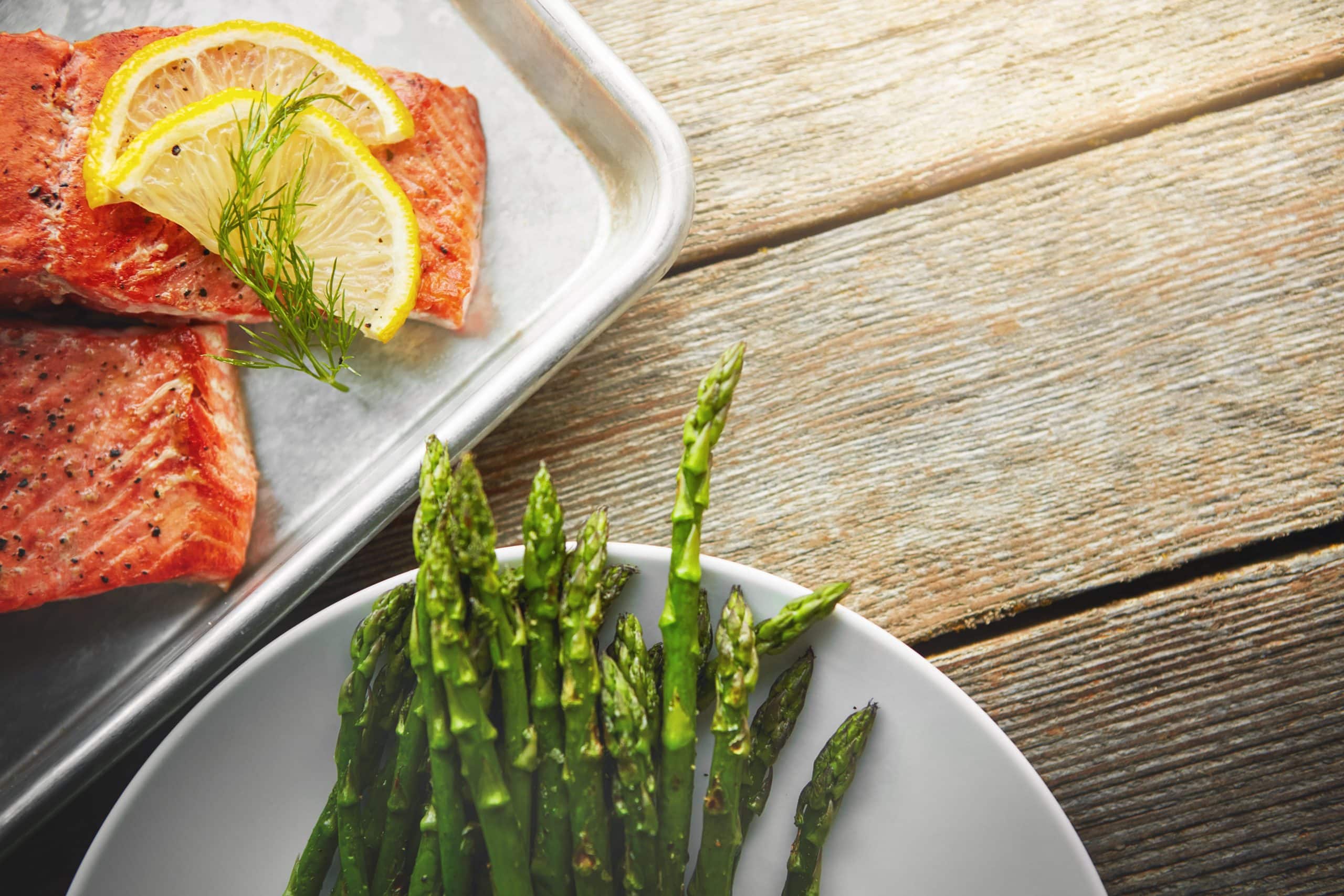Introduction
Stereotypically, diets are associated with weight loss. People mistakenly believe that on a diet, one has to cut down on meals, foods, beverages, etc. in order to get the desired result. In reality, diets are not always weight loss oriented. Some of them, apart from helping you control your weight, promote healthy eating and improve your wellbeing. Among such is the gluten free Mediterranean diet, which is known for its numerous advantages. If you are interested in losing weight healthily and improving your lifestyle, here is how you can do it with the gluten free Mediterranean diet.
What Is The Mediterranean Diet?
Mediterranean meal plans contain the traditional dishes of the Mediterranean countries. The typical components of the Mediterranean cuisines are fruits, vegetables, beans, nuts, seeds, whole grains, and olive oil. In other words, plant-based foods are the core of the diet. Other products, such as seafood, meat, and dairy are of secondary importance (9). Yet, you should not forget to include foods rich in protein to your meal plan. Overall, the Mediterranean diet promotes healthy eating habits and balanced meal plans, which benefit your wellbeing.
The Mediterranean diet is a healthy eating pattern and the Dietary Guidelines for American recommend it. Likewise, the World Health Organization deemed it “healthy and sustainable” (4). Thus far not every diet has such recognition, which makes the Mediterranean meal plan worth a try.
Benefits Of The Mediterranean Diet
The Mediterranean diet may:
- Ease rheumatoid arthritis. Fruits and vegetables are rich in antioxidants that prevent inflammation (2).
- Prevent cardiovascular diseases. The diet is low in foods containing saturated fat, limiting which is said to benefit your heart (11). Similarly, this healthy eating pattern may help lower your blood pressure and cholesterol level (10).
- Prevent type 2 diabetes. One scientific review suggests that the Mediterranean diet reduces risk of type 2 diabetes and improves long-term blood sugar control, but further research is required in this regard (8).
- Help you lose weight. Many of the foods on the Mediterranean diet are relatively low in calories, which is why consuming them can help you shed some pounds.
Read More: Different Types Of Diets: The Lowdown On The Most Talked-About Weight Loss Strategies
The Typical Mediterranean Diet Pattern
The traditional Mediterranean meal plan looks like this (9):
- Eat veggies, fruits, and whole grains every day.
- Eat seafood, poultry, and eggs every week.
- Consume dairy products in moderate amounts and sometimes.
- Eat red meat even less often and in very small portions.
Water is a crucial element of the diet. You should make sure that you drink enough of it for your body weight in order to avoid dehydration.
Why Is The Mediterranean Diet Easy To Stick To?
There are a number of reasons why the Mediterranean diet is simple and non-demanding. First off, you do not have to starve. The Mediterranean diet plans are balanced and include all the essential nutrients needed for the proper functioning of your body. There are a couple of insignificant restrictions on the foods you may eat. You may eat as many times a day as you want. Moreover, you are allowed to have nuts, seeds, and berries as your snacks in-between meals (1). Practically, you can eat whenever you want during the day and benefit from it.
Another reason why following the Mediterranean meal plan is not hard is that it does not require you to count calories (1). Your main task on the diet is to cut down on unhealthy foods. Practically, you need to substitute products high in unhealthy fats and sugar with healthier ones. Thus, you will naturally reduce your calorie intake.
BetterMe app will kick you out of the mental funk, shake off your extra weight, rid you of your energy-zapping habits, and help you sculpt the body of your dreams. Intrigued? Hurry up and change your life for the better!
What Is Healthy Fat?
Healthy fats are a cornerstone of the Mediterranean diet. These are a great substitute for the saturated and trans fats that have a deleterious effect on your wellbeing.
The main source of healthy fat on the Mediterranean diet is olive oil. It contains monounsaturated fat, which lowers the LDL (bad cholesterol) level in your body. Other foods with monounsaturated fat are nuts and seeds.
Another source of healthy fat is fish, which is the main source of lean protein on the diet. Sea fish, such as mackerel, sardines, salmon, and others contain omega-3 fatty acids, that is, essential polyunsaturated fat. Omega-3 fats may reduce inflammation in the body, blood clotting, and the chance of heart failure (9).
Alcohol Beverages On The Mediterranean Diet
It is not recommended to drink alcohol on the Mediterranean diet, but wine is the exception. Drinking wine in moderation may positively contribute to heart health. In particular, red wine is more preferred than other types. However, if you do not currently drink alcohol, it is not recommended to start or to increase your alcohol intake. You can still achieve all the health benefits of a Mediterranean diet without the red wine.
The Gluten Free Diet
The essence of this diet is in avoiding foods that contain gluten, which is found in some whole grains. Hence, gluten is present in rye, barley, and wheat. Gluten is also found in products made from those grains such as bread, pastry, pasta, and beer. Soy sauce and other foods with so-called natural flavorings, along with particular medications, can also contain gluten (7). People with certain conditions need to avoid gluten. On the gluten free diet, you need not just to exclude these foods but substitute them with gluten-free ones. If you suffer from celiac disease, another gluten sensitivity, gluten ataxia or wheat allergy, avoiding gluten will help to prevent symptoms such as (6):
- Intestinal damage, abdominal pain, diarrhea, constipation, bloating, etc.
- Other autoimmune responses affecting the skin or nervous system.
- Nutrient malabsorption which can lead to conditions such as anemia, osteoporosis, nerve damage, and seizures.
- Allergic reactions (7).
How To Substitute Gluten Wisely?
Products high in gluten are not harmful to most people and have a number of nutrients essential for your body. For example, whole wheat is a valuable source of dietary fiber, which facilitates digestion, decreases cholesterol levels, and regulates blood sugar (3). You cannot just remove fiber from your meal plan because it is necessary for your body. Hence, you can substitute wheat with quinoa and brown rice, which are naturally gluten-free (7).
When choosing bread, you should consider that breads made of gluten free flours might be deficient in certain nutrients and vitamins. This can affect your wellbeing, especially if you are a pregnant woman. Fortified breads contain folic acid, which prevents birth effects. The solution is to add gluten free multivitamin-multimineral supplements, which will help you avoid B vitamin and other deficiencies (7).
Cross-contamination is another thing you should pay attention to if you want to go gluten free. Therefore, before buying a product, you should learn about its source. It can happen that even the items inherently gluten-free could have been grown together with gluten crops, or processed on the same equipment, resulting in cross-contamination. This is particularly common with oats. The FDA has specific requirements as far as what food products can be labeled “gluten-free” (5). Consequently, you should always carefully check the labeling and origin of the foods you buy, and choose brands you trust.
Read More: Yogic Diet: Keep Your Body Nourished And Your Mind Clear
The Gluten Free Mediterranean Diet
The Gluten-Free Mediterranean diet is a combination of the two diet types. Practically, it is the same as the Mediterranean diet but without certain products that contain gluten. In other words, on this diet you have to avoid barley, wheat, and rye, substituting them with gluten-free alternatives. Consequently, the benefits of the gluten-free Mediterranean diet are combined, bringing even more use to your body.
Gluten Free Mediterranean Recipes
Falafel
Ingredients:
- 7 cloves minced garlic
- 1/2 minced white onion
- 11/2 cups drained chickpeas
- 2 handfuls of minced fresh parsley
- 1 tsp ground coriander
- 2-3 tsp ground cumin
- 11/2 tsp sea salt
- 2 tbsp gluten-free oat flour
- Olive oil
Instructions:
- Add all the ingredients to the food processor and pulse until the chickpeas are properly chopped. Usually, it takes about 5 minutes.
- Form round patties and put them in the fridge for about an hour.
- Take the patties away from the fridge and fry them in olive oil.
- The falafel is ready.
BetterMe will keep you laser-focused on your weight loss journey! Nutrient-packed meal plans, fat-blasting workouts, galvanizing challenges and much more. Try using the app and see for yourself!
Greek Salad
Ingredients:
Salad:
- 10 lettuce leaves
- 1 cup chopped cucumber
- ½ cup sliced olives
- 2 cups chopped tomatoes
- ½ cup low-fat feta cheese
Dressing:
- 1 clove chopped garlic
- 1 tsp salt
- ½ tsp sugar
- 3 tbsp fresh lemon juice
- 1 tbsp chopped oregano leaves
- ¼ tsp pepper
- 5 tbsp olive oil
Instructions:
- Whisk the ingredients for the dressing in a small bowl.
- In a larger bowl, put all the salad ingredients except the feta cheese.
- Mix the salad ingredients with the dressing.
- Add the cheese.
- The salad is ready.
The Mediterranean Chocolate Cake
Ingredients:
Cake:
- 4 large eggs
- ¾ cup gluten-free flour
- 1 cup unsweetened cocoa powder
- ¼ tsp baking soda
- approx. ¼ tsp ground cinnamon
- ¼ tsp salt
- 1 cup granulated sugar
- 1/2 cup olive oil
Glaze:
- 1 pinch salt
- 2 tbsp water
- 1 cup powdered sugar
- ¼ cup unsweetened cocoa powder
- ½ tbsp olive oil
Instructions:
- Heat the oven to 350°F. Smear the olive oil over the pan. Cover the bottom of the pan with parchment paper.
- Whisk flour, cocoa, baking soda, and cinnamon in a smaller bowl.
- Blend eggs and salt in a larger bowl, slowly adding granulated sugar. Whisk until the ingredients are combined.
- Sift the flour mixture over the egg one and blend them. Then add olive oil.
- Pour the mixture into the prepared pan.
- Bake for 30-40 minutes.
- Get the cake out of the oven.
- Bon appetit!
Conclusion
Deemed a healthy diet and recommended by the WHO, the Mediterranean diet truly has a number of advantages. Unlike many other diets, it is possible to follow the Mediterranean diet for a lengthy period of time without taking a toll on your health. You can also modify the meal plan, for example, by excluding gluten from it. This will benefit you in various ways, as it will help you slim down, prevent severe disease symptoms, deal with your allergies, etc. The gluten free Mediterranean diet is easy to stick to, as it does not restrict you much. What it does is promote healthy eating habits. In terms of weight loss, this diet is a perfect choice for those who want to slim down gradually and prevent further weight gain. Nevertheless, despite the safety of the meal plan, you are recommended to see a doctor and a dietitian in order to avoid mistakes and choose the correct substitutes for the forbidden foods.
Get your personalized
meal plan!
DISCLAIMER:
This article is intended for general informational purposes only and does not address individual circumstances. It is not a substitute for professional advice or help and should not be relied on to make decisions of any kind. Any action you take upon the information presented in this article is strictly at your own risk and responsibility!
SOURCES:
- 12 Reasons to Love the Mediterranean Diet (2019, webmd.com)
- Can Food Ease RA Symptoms? (2019, webmd.com)
- Dietary fiber: Essential for a healthy diet (2018, mayoclinic.org)
- Fostering healthier and more sustainable diets – learning from the Mediterranean and New Nordic experience (2018, euro.who.int)
- Gluten and Food Labeling (2018, fda.gov)
- Gluten-free diet (2019, mayoclinic.org)
- Going gluten-free just because? Here’s what you need to know (2013, health.harvard.edu)
- Mediterranean diet for type 2 diabetes: cardiometabolic benefits (2017, ncbi.nlm.nih.gov)
- Mediterranean diet: A heart-healthy eating plan (2019, mayoclinic.org)
- The Mediterranean Diet (2019, webmd.com)
- The Mediterranean Diet and Cardiovascular Health (2019, ncbi.nlm.nih.gov)














